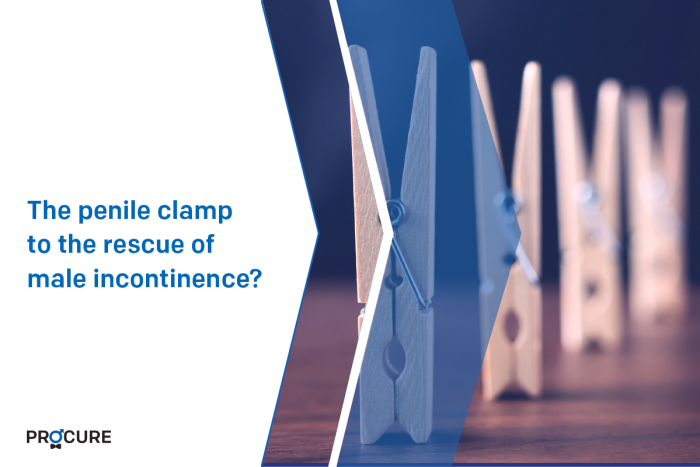Knowing what type of incontinence you have, especially if you have been treated for prostate cancer, can help you find ways to treat this problem. But what about the penile clamp?
They may seem unpleasant, but for some men, penile clamps, also known as “external compression devices”, can make a big difference. A little pressure on the penis can temporarily close the urethra, preventing any possible leakage.
Did you know that the penile clamp was developed by a patient with prostate cancer? Indeed, dissatisfied with absorbent pads, he developed the penile clamp. Eager to live life to the fullest, without embarrassment, odor, without constant leakage, and above all without being forced to talk about his urinary incontinence problem or to stay at home permanently.
This being said, these devices are not for everyone. It is therefore important to talk to your doctor or urologist. Using them too often could cause circulation problems, skin irritation, among others. And generally, they are only meant to be used for a few hours at a time.
Which clamp to choose and how to place it?
- There is a wide range of penile clamps and finding the best model can take some time. Prices vary widely as well ($35 to $173).
- Most clamps come in different sizes. The pressure of the clamp on the urethra should be adjustable, and sometimes it needs to be adjusted depending on your activities and weather conditions. When it is cold outside, the penis is usually smaller than when it is hot.
- The part that fits around the penis is soft foam and should not be uncomfortable. It should be placed so that normal sensations are felt in the penis and in the bladder.
- The clamp is placed in the middle of your penis: you tighten it slightly at the beginning and you adapt it gradually. When wearing it, do not hesitate to change it slightly so that the pressure is not always in the same place.
It takes time to get used to wearing it and be aware that slight leakage may still remain. It depends on the degree of deterioration of the urinary system of each man. Abdominal overpressure (such as lifting a heavy load or coughing) can cause momentary leakage that cannot be controlled.
When should they be avoided?
- Right after radical prostate surgery, your pelvic muscles must first be re-educated
- If you have significant urine leakage in terms of your amount of urine
- If you have abnormal sensations in the penis or fragile skin
- If you have poor hand control (reduced dexterity)
- If you have memory problems
Where to get this accessory
You can contact the Centre de stomie du Québec. Their advisers will be able to provide you with information on the product at 1 800 463-5318.
Take the time to visit each of our pages on this website, as well as our YouTube channel, in order to get familiar with the disease with our expert lectures, our section on available resources, the support that is offered to you.
Do you have any questions or concerns? Above all, do not hesitate. Contact us at 1 855 899-2873 to discuss with a nurse specializing in uro-oncology. It’s simple and free, like all our services.
A webinar that might interest you (in French only)
Urinary, sexual or intestinal problems? with Dr, Thierry Lebeau – September 2020
Pages of our site that might interest you
Want to know more? Just click on one of the links below.
Treatment options
Urinary problems?
Resources for you
PROCURE news that may interest you
Each week, we publish a blog article. Here are a few for you.
6 tips for dealing with urinary incontinence
Blood in urine – what does that mean?
What your urine can tell you
Written by PROCURE. © All rights reserved – 2020



